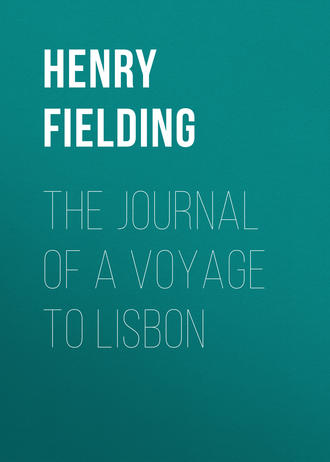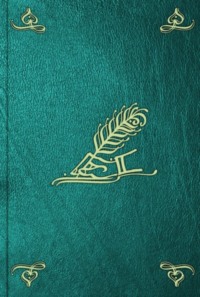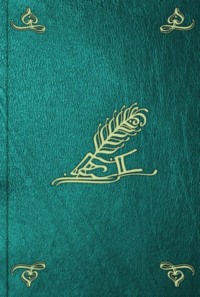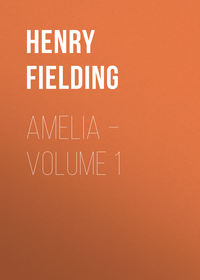 полная версия
полная версияThe Journal of a Voyage to Lisbon
THE VOYAGE
WEDNESDAY, June 26, 1754. – On this day the most melancholy sun I had ever beheld arose, and found me awake at my house at Fordhook. By the light of this sun I was, in my own opinion, last to behold and take leave of some of those creatures on whom I doted with a mother-like fondness, guided by nature and passion, and uncured and unhardened by all the doctrine of that philosophical school where I had learned to bear pains and to despise death. In this situation, as I could not conquer Nature, I submitted entirely to her, and she made as great a fool of me as she had ever done of any woman whatsoever; under pretense of giving me leave to enjoy, she drew me in to suffer, the company of my little ones during eight hours; and I doubt not whether, in that time, I did not undergo more than in all my distemper.
At twelve precisely my coach was at the door, which was no sooner told me than I kissed my children round, and went into it with some little resolution. My wife, who behaved more like a heroine and philosopher, though at the same time the tenderest mother in the world, and my eldest daughter, followed me; some friends went with us, and others here took their leave; and I heard my behavior applauded, with many murmurs and praises to which I well knew I had no title; as all other such philosophers may, if they have any modesty, confess on the like occasions.
In two hours we arrived in Rotherhithe, and immediately went on board, and were to have sailed the next morning; but, as this was the king's proclamation-day, and consequently a holiday at the custom-house, the captain could not clear his vessel till the Thursday; for these holidays are as strictly observed as those in the popish calendar, and are almost as numerous. I might add that both are opposite to the genius of trade, and consequently contra bonum publicum.
To go on board the ship it was necessary first to go into a boat; a matter of no small difficulty, as I had no use of my limbs, and was to be carried by men who, though sufficiently strong for their burden, were, like Archimedes, puzzled to find a steady footing. Of this, as few of my readers have not gone into wherries on the Thames, they will easily be able to form to themselves an idea. However, by the assistance of my friend, Mr. Welch, whom I never think or speak of but with love and esteem, I conquered this difficulty, as I did afterwards that of ascending the ship, into which I was hoisted with more ease by a chair lifted with pulleys. I was soon seated in a great chair in the cabin, to refresh myself after a fatigue which had been more intolerable, in a quarter of a mile's passage from my coach to the ship, than I had before undergone in a land-journey of twelve miles, which I had traveled with the utmost expedition.
This latter fatigue was, perhaps, somewhat heightened by an indignation which I could not prevent arising in my mind. I think, upon my entrance into the boat, I presented a spectacle of the highest horror. The total loss of limbs was apparent to all who saw me, and my face contained marks of a most diseased state, if not of death itself. Indeed, so ghastly was my countenance, that timorous women with child had abstained from my house, for fear of the ill consequences of looking at me. In this condition I ran the gauntlope (so I think I may justly call it) through rows of sailors and watermen, few of whom failed of paying their compliments to me by all manner of insults and jests on my misery. No man who knew me will think I conceived any personal resentment at this behavior; but it was a lively picture of that cruelty and inhumanity in the nature of men which I have often contemplated with concern, and which leads the mind into a train of very uncomfortable and melancholy thoughts. It may be said that this barbarous custom is peculiar to the English, and of them only to the lowest degree; that it is an excrescence of an uncontrolled licentiousness mistaken for liberty, and never shows itself in men who are polished and refined in such manner as human nature requires to produce that perfection of which it is susceptible, and to purge away that malevolence of disposition of which, at our birth, we partake in common with the savage creation. This may be said, and this is all that can be said; and it is, I am afraid, but little satisfactory to account for the inhumanity of those who, while they boast of being made after God's own image, seem to bear in their minds a resemblance of the vilest species of brutes; or rather, indeed, of our idea of devils; for I don't know that any brutes can be taxed with such malevolence. A sirloin of beef was now placed on the table, for which, though little better than carrion, as much was charged by the master of the little paltry ale-house who dressed it as would have been demanded for all the elegance of the King's Arms, or any other polite tavern or eating-house! for, indeed, the difference between the best house and the worst is, that at the former you pay largely for luxury, at the latter for nothing.
Thursday, June 27. – This morning the captain, who lay on shore at his own house, paid us a visit in the cabin, and behaved like an angry bashaw, declaring that, had he known we were not to be pleased, he would not have carried us for five hundred pounds. He added many asseverations that he was a gentleman, and despised money; not forgetting several hints of the presents which had been made him for his cabin, of twenty, thirty, and forty guineas, by several gentlemen, over and above the sum for which they had contracted. This behavior greatly surprised me, as I knew not how to account for it, nothing having happened since we parted from the captain the evening before in perfect good humor; and all this broke forth on the first moment of his arrival this morning. He did not, however, suffer my amazement to have any long continuance before he clearly showed me that all this was meant only as an apology to introduce another procrastination (being the fifth) of his weighing anchor, which was now postponed till Saturday, for such was his will and pleasure.
Besides the disagreeable situation in which we then lay, in the confines of Wapping and Rotherhithe, tasting a delicious mixture of the air of both these sweet places, and enjoying the concord of sweet sounds of seamen, watermen, fish-women, oyster-women, and of all the vociferous inhabitants of both shores, composing altogether a greater variety of harmony than Hogarth's imagination hath brought together in that print of his, which is enough to make a man deaf to look at – I had a more urgent cause to press our departure, which was, that the dropsy, for which I had undergone three tappings, seemed to threaten me with a fourth discharge before I should reach Lisbon, and when I should have nobody on board capable of performing the operation; but I was obliged to hearken to the voice of reason, if I may use the captain's own words, and to rest myself contented. Indeed, there was no alternative within my reach but what would have cost me much too dear. There are many evils in society from which people of the highest rank are so entirely exempt, that they have not the least knowledge or idea of them; nor indeed of the characters which are formed by them. Such, for instance, is the conveyance of goods and passengers from one place to another. Now there is no such thing as any kind of knowledge contemptible in itself; and, as the particular knowledge I here mean is entirely necessary to the well understanding and well enjoying this journal; and, lastly, as in this case the most ignorant will be those very readers whose amusement we chiefly consult, and to whom we wish to be supposed principally to write, we will here enter somewhat largely into the discussion of this matter; the rather, for that no ancient or modern author (if we can trust the catalogue of doctor Mead's library) hath ever undertaken it, but that it seems (in the style of Don Quixote) a task reserved for my pen alone.
When I first conceived this intention I began to entertain thoughts of inquiring into the antiquity of traveling; and, as many persons have performed in this way (I mean have traveled) at the expense of the public, I flattered myself that the spirit of improving arts and sciences, and of advancing useful and substantial learning, which so eminently distinguishes this age, and hath given rise to more speculative societies in Europe than I at present can recollect the names of – perhaps, indeed, than I or any other, besides their very near neighbors, ever heard mentioned – would assist in promoting so curious a work; a work begun with the same views, calculated for the same purposes, and fitted for the same uses, with the labors which those right honorable societies have so cheerfully undertaken themselves, and encouraged in others; sometimes with the highest honors, even with admission into their colleges, and with enrollment among their members.
From these societies I promised myself all assistance in their power, particularly the communication of such valuable manuscripts and records as they must be supposed to have collected from those obscure ages of antiquity when history yields us such imperfect accounts of the residence, and much more imperfect of the travels, of the human race; unless, perhaps, as a curious and learned member of the young Society of Antiquarians is said to have hinted his conjectures, that their residence and their travels were one and the same; and this discovery (for such it seems to be) he is said to have owed to the lighting by accident on a book, which we shall have occasion to mention presently, the contents of which were then little known to the society.
The king of Prussia, moreover, who, from a degree of benevolence and taste which in either case is a rare production in so northern a climate, is the great encourager of art and science, I was well assured would promote so useful a design, and order his archives to be searched on my behalf. But after well weighing all these advantages, and much meditation on the order of my work, my whole design was subverted in a moment by hearing of the discovery just mentioned to have been made by the young antiquarian, who, from the most ancient record in the world (though I don't find the society are all agreed on this point), one long preceding the date of the earliest modern collections, either of books or butterflies, none of which pretend to go beyond the flood, shows us that the first man was a traveler, and that he and his family were scarce settled in Paradise before they disliked their own home, and became passengers to another place. Hence it appears that the humor of traveling is as old as the human race, and that it was their curse from the beginning. By this discovery my plan became much shortened, and I found it only necessary to treat of the conveyance of goods and passengers from place to place; which, not being universally known, seemed proper to be explained before we examined into its original. There are indeed two different ways of tracing all things used by the historian and the antiquary; these are upwards and downwards.
The former shows you how things are, and leaves to others to discover when they began to be so. The latter shows you how things were, and leaves their present existence to be examined by others. Hence the former is more useful, the latter more curious. The former receives the thanks of mankind; the latter of that valuable part, the virtuosi.
In explaining, therefore, this mystery of carrying goods and passengers from one place to another, hitherto so profound a secret to the very best of our readers, we shall pursue the historical method, and endeavor to show by what means it is at present performed, referring the more curious inquiry either to some other pen or to some other opportunity.
Now there are two general ways of performing (if God permit) this conveyance, viz., by land and water, both of which have much variety; that by land being performed in different vehicles, such as coaches, caravans, wagons, etc.; and that by water in ships, barges, and boats, of various sizes and denominations. But, as all these methods of conveyance are formed on the same principles, they agree so well together, that it is fully sufficient to comprehend them all in the general view, without descending to such minute particulars as would distinguish one method from another.
Common to all of these is one general principle that, as the goods to be conveyed are usually the larger, so they are to be chiefly considered in the conveyance; the owner being indeed little more than an appendage to his trunk, or box, or bale, or at best a small part of his own baggage, very little care is to be taken in stowing or packing them up with convenience to himself; for the conveyance is not of passengers and goods, but of goods and passengers.
Secondly, from this conveyance arises a new kind of relation, or rather of subjection, in the society, by which the passenger becomes bound in allegiance to his conveyer. This allegiance is indeed only temporary and local, but the most absolute during its continuance of any known in Great Britain, and, to say truth, scarce consistent with the liberties of a free people, nor could it be reconciled with them, did it not move downwards; a circumstance universally apprehended to be incompatible to all kinds of slavery; for Aristotle in his Politics hath proved abundantly to my satisfaction that no men are born to be slaves, except barbarians; and these only to such as are not themselves barbarians; and indeed Mr. Montesquieu hath carried it very little farther in the case of the Africans; the real truth being that no man is born to be a slave, unless to him who is able to make him so.
Thirdly, this subjection is absolute, and consists of a perfect resignation both of body and soul to the disposal of another; after which resignation, during a certain time, his subject retains no more power over his own will than an Asiatic slave, or an English wife, by the laws of both countries, and by the customs of one of them. If I should mention the instance of a stage-coachman, many of my readers would recognize the truth of what I have here observed; all, indeed, that ever have been under the dominion of that tyrant, who in this free country is as absolute as a Turkish bashaw. In two particulars only his power is defective; he cannot press you into his service, and if you enter yourself at one place, on condition of being discharged at a certain time at another, he is obliged to perform his agreement, if God permit, but all the intermediate time you are absolutely under his government; he carries you how he will, when he will, and whither he will, provided it be not much out of the road; you have nothing to eat or to drink, but what, and when, and where he pleases. Nay, you cannot sleep unless he pleases you should; for he will order you sometimes out of bed at midnight and hurry you away at a moment's warning: indeed, if you can sleep in his vehicle he cannot prevent it; nay, indeed, to give him his due, this he is ordinarily disposed to encourage: for the earlier he forces you to rise in the morning, the more time he will give you in the heat of the day, sometimes even six hours at an ale-house, or at their doors, where he always gives you the same indulgence which he allows himself; and for this he is generally very moderate in his demands. I have known a whole bundle of passengers charged no more than half-a-crown for being suffered to remain quiet at an ale-house door for above a whole hour, and that even in the hottest day in summer. But as this kind of tyranny, though it hath escaped our political writers, hath been I think touched by our dramatic, and is more trite among the generality of readers; and as this and all other kinds of such subjection are alike unknown to my friends, I will quit the passengers by land, and treat of those who travel by water; for whatever is said on this subject is applicable to both alike, and we may bring them together as closely as they are brought in the liturgy, when they are recommended to the prayers of all Christian congregations; and (which I have often thought very remarkable) where they are joined with other miserable wretches, such as women in labor, people in sickness, infants just born, prisoners and captives. Goods and passengers are conveyed by water in divers vehicles, the principal of which being a ship, it shall suffice to mention that alone. Here the tyrant doth not derive his title, as the stage-coachman doth, from the vehicle itself in which he stows his goods and passengers, but he is called the captain – a word of such various use and uncertain signification, that it seems very difficult to fix any positive idea to it: if, indeed, there be any general meaning which may comprehend all its different uses, that of the head or chief of any body of men seems to be most capable of this comprehension; for whether they be a company of soldiers, a crew of sailors, or a gang of rogues, he who is at the head of them is always styled the captain.
The particular tyrant whose fortune it was to stow us aboard laid a farther claim to this appellation than the bare command of a vehicle of conveyance. He had been the captain of a privateer, which he chose to call being in the king's service, and thence derived a right of hoisting the military ornament of a cockade over the button of his hat. He likewise wore a sword of no ordinary length by his side, with which he swaggered in his cabin, among the wretches his passengers, whom he had stowed in cupboards on each side. He was a person of a very singular character. He had taken it into his head that he was a gentleman, from those very reasons that proved he was not one; and to show himself a fine gentleman, by a behavior which seemed to insinuate he had never seen one. He was, moreover, a man of gallantry; at the age of seventy he had the finicalness of Sir Courtly Nice, with the roughness of Surly; and, while he was deaf himself, had a voice capable of deafening all others.
Now, as I saw myself in danger by the delays of the captain, who was, in reality, waiting for more freight, and as the wind had been long nested, as it were, in the southwest, where it constantly blew hurricanes, I began with great reason to apprehend that our voyage might be long, and that my belly, which began already to be much extended, would require the water to be let out at a time when no assistance was at hand; though, indeed, the captain comforted me with assurances that he had a pretty young fellow on board who acted as his surgeon, as I found he likewise did as steward, cook, butler, sailor. In short, he had as many offices as Scrub in the play, and went through them all with great dexterity; this of surgeon was, perhaps, the only one in which his skill was somewhat deficient, at least that branch of tapping for the dropsy; for he very ingenuously and modestly confessed he had never seen the operation performed, nor was possessed of that chirurgical instrument with which it is performed.
Friday, June 28. – By way of prevention, therefore, I this day sent for my friend, Mr. Hunter, the great surgeon and anatomist of Covent-garden; and, though my belly was not yet very full and tight, let out ten quarts of water; the young sea-surgeon attended the operation, not as a performer, but as a student.
I was now eased of the greatest apprehension which I had from the length of the passage; and I told the captain I was become indifferent as to the time of his sailing. He expressed much satisfaction in this declaration, and at hearing from me that I found myself, since my tapping, much lighter and better. In this, I believe, he was sincere; for he was, as we shall have occasion to observe more than once, a very good-natured man; and, as he was a very brave one too, I found that the heroic constancy with which I had borne an operation that is attended with scarce any degree of pain had not a little raised me in his esteem. That he might adhere, therefore, in the most religious and rigorous manner to his word, when he had no longer any temptation from interest to break it, as he had no longer any hopes of more goods or passengers, he ordered his ship to fall down to Gravesend on Sunday morning, and there to wait his arrival.
Sunday, June 30. – Nothing worth notice passed till that morning, when my poor wife, after passing a night in the utmost torments of the toothache, resolved to have it drawn. I despatched therefore a servant into Wapping to bring in haste the best tooth-drawer he could find. He soon found out a female of great eminence in the art; but when he brought her to the boat, at the waterside, they were informed that the ship was gone; for indeed she had set out a few minutes after his quitting her; nor did the pilot, who well knew the errand on which I had sent my servant, think fit to wait a moment for his return, or to give me any notice of his setting out, though I had very patiently attended the delays of the captain four days, after many solemn promises of weighing anchor every one of the three last. But of all the petty bashaws or turbulent tyrants I ever beheld, this sour-faced pilot was the worst tempered; for, during the time that he had the guidance of the ship, which was till we arrived in the Downs, he complied with no one's desires, nor did he give a civil word, or indeed a civil look, to any on board.
The tooth-drawer, who, as I said before, was one of great eminence among her neighbors, refused to follow the ship; so that my man made himself the best of his way, and with some difficulty came up with us before we were got under full sail; for after that, as we had both wind and tide with us, he would have found it impossible to overtake the ship till she was come to an anchor at Gravesend.
The morning was fair and bright, and we had a passage thither, I think, as pleasant as can be conceived: for, take it with all its advantages, particularly the number of fine ships you are always sure of seeing by the way, there is nothing to equal it in all the rivers of the world. The yards of Deptford and of Woolwich are noble sights, and give us a just idea of the great perfection to which we are arrived in building those floating castles, and the figure which we may always make in Europe among the other maritime powers. That of Woolwich, at least, very strongly imprinted this idea on my mind; for there was now on the stocks there the Royal Anne, supposed to be the largest ship ever built, and which contains ten carriage-guns more than had ever yet equipped a first-rate.
It is true, perhaps, that there is more of ostentation than of real utility in ships of this vast and unwieldy burden, which are rarely capable of acting against an enemy; but if the building such contributes to preserve, among other nations, the notion of the British superiority in naval affairs, the expense, though very great, is well incurred, and the ostentation is laudable and truly political. Indeed, I should be sorry to allow that Holland, France, or Spain, possessed a vessel larger and more beautiful than the largest and most beautiful of ours; for this honor I would always administer to the pride of our sailors, who should challenge it from all their neighbors with truth and success. And sure I am that not our honest tars alone, but every inhabitant of this island, may exult in the comparison, when he considers the king of Great Britain as a maritime prince, in opposition to any other prince in Europe; but I am not so certain that the same idea of superiority will result from comparing our land forces with those of many other crowned heads. In numbers they all far exceed us, and in the goodness and splendor of their troops many nations, particularly the Germans and French, and perhaps the Dutch, cast us at a distance; for, however we may flatter ourselves with the Edwards and Henrys of former ages, the change of the whole art of war since those days, by which the advantage of personal strength is in a manner entirely lost, hath produced a change in military affairs to the advantage of our enemies. As for our successes in later days, if they were not entirely owing to the superior genius of our general, they were not a little due to the superior force of his money. Indeed, if we should arraign marshal Saxe of ostentation when he showed his army, drawn up, to our captive general, the day after the battle of La Val, we cannot say that the ostentation was entirely vain; since he certainly showed him an army which had not been often equaled, either in the number or goodness of the troops, and which, in those respects, so far exceeded ours, that none can ever cast any reflection on the brave young prince who could not reap the laurels of conquest in that day; but his retreat will be always mentioned as an addition to his glory.









